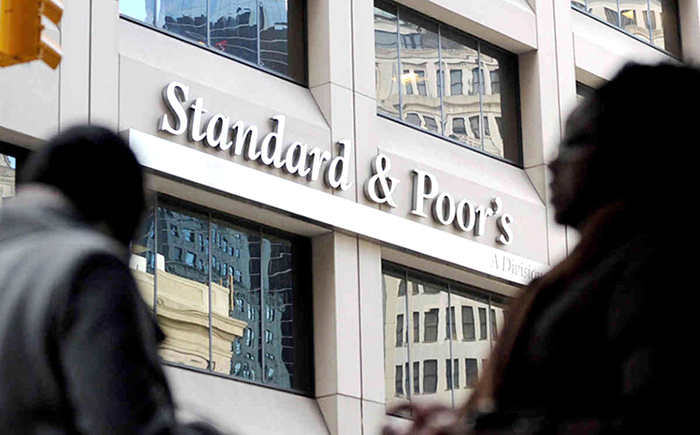New York – Standard & Poor’s (S&P) has upgraded Cyprus’ credit ratings to investment grade, after calling them “junk” for more than six years. Late last week, the rating agency raised Cyprus’ sovereign credit ratings to ‘BBB-/A-3’ from ‘BB+/B’ with stable outlook.
S&P were one of the first credit rating agencies to downgrade Cyprus’ ratings to junk, in January 2012.
“The return after 6.5 years to investment grade is the strongest confirmation of the prudent management that we followed and continue to follow,” President, Nicos Anastasiades, tweeted.
“Our economy is recovering with the best omens being confirmed,” he said.
Finance Minister, Harris Georgiades, said that one of the most important economic policy objectives has been achieved. “The growth perspective is reinforced. Our country is financially shielded. The difficult decisions we were called upon to take are being justified,” the minister tweeted.
In its statement explaining the upgrade, S&P said that the Cypriot authorities have carved out the bad assets of the Cyprus Cooperative Bank (CCB), paving the way for a significant reduction in the banking sector’s nonperforming assets even though it came at a cost of 15% of economic output.
“We anticipate that strong economic growth through 2021, prudent policymaking, and only moderate state support to the banking system will allow the government to run budgetary surpluses and prompt a reduction in public debt.”
The rating agency projects that the Cypriot economy will grow by 4% in 2018 and by 3% on average between 2019 and 2021. Real GDP growth by 4% in 2018, will allow a return to the economy’s 2011 pre-crisis size, it is added.
S&P also say that unemployment rate has been on a declining trend, falling from 16% in 2014 to 11% in 2017, then further to 9.5% in the first five months of 2018.
They also note that the Cypriot private sector balance sheet is among the most indebted in Europe, at about 240% of GDP at the end of 2017 and is likely to remain high over the medium term.
“Despite solid economic growth, private sector debt is likely to remain high over the medium term, although tapering slowly via repayments – currently financed by savings, restructuring, ongoing write-offs, and debt-for-asset swaps with banks,” S&P said, adding: “We also note that the increasing concentration of the economy in tourism and construction activities presents another potential risk.”
S&P said that another rating upgrade could be possible over the next two years if debt levels significantly fall or much of the banks reduce their delinquent loans stock “materially” and financial conditions improve.
On the other hand, “the ratings could come under pressure if economic growth is significantly lower than our projections, endangering private debt service and further financial sector improvements, or if – contrary to our expectations – the general government debt burden rises substantially,” it said.
The upgrade will allow banks to use Cypriot government securities for the monetary operations of the European Central Bank, which last Thursday announced that it will end its expanded asset purchasing programme, widely known as quantitative easing or QE, by the end of the year.
The news of the upgrade was welcomed by ruling party Disy and opposition Diko, but other opposition parties said that conditions had not yet improved for many workers.






